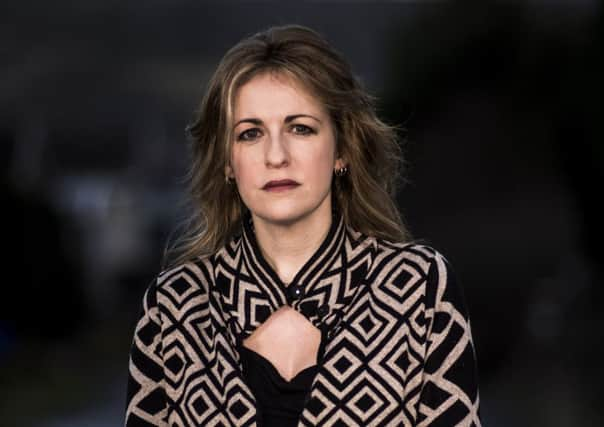Sister of Richey Edwards describes anguish of father


Today marks 20 years since the Welsh guitarist checked out of a London hotel. He was never seen again.
Two weeks later his car was found abandoned at a motorway service station. Despite numerous appeals, no trace of him has been found.
Advertisement
Hide AdAdvertisement
Hide AdHis sister Rachel Elias hopes he will be remembered for his talents rather than his troubles – which culminated in him being admitted to a mental health unit.
But while she is aiming to secure a more positive legacy for her brother, coming to terms with the events of 1 February, 1995, is still a long way off for her family – especially in light of the death of her father Graham two years ago, five years after her brother was legally declared dead.
She said: “Dad… had terminal cancer. It wasn’t a sudden death. It was difficult because he had to face up to that realisation – that we all may have to – we may not find out what happened to Richard.”
FOLLOW US
SCOTSMAN TABLET AND MOBILE APPS
But she said the feeling of bereavement when her father died was different from the pain felt when someone vanishes. She said: “Not knowing makes it worse.”
Much has been made of Edwards’ sudden disappearance – which came against a backdrop of personal turmoil.
In 1994, the Manics released their third album, a dark masterpiece, The Holy Bible, most of the lyrics written by Edwards. He wrote songs on issues such as prostitution, anorexia and the horrors of the Holocaust. Once he carved the words 4 REAL into his arm in response to a journalist who questioned his band’s integrity.
In the run-up to the LP’s release, Edwards was admitted to Whitchurch Psychiatric Hospital in Cardiff before being checked into the Priory Clinic as his alcoholism and self-harming spiralled out of control. He emerged, hair cropped, and appeared to be on the mend, preparing for a promotional tour of the US.
It was then he checked into the Embassy Hotel in London with band singer James Dean Bradfield ahead of a flight across the Atlantic next day. But when Bradfield went to rouse his bandmate, no answer came from room 516.
Advertisement
Hide AdAdvertisement
Hide AdWhen hotel staff opened the room, they found it empty, save for a handful of personal effects. His sister said that sent alarm bells ringing.
“His disappearance really was out of character, ” she added. “The idea … he walked off as to say ‘I’m not getting on this flight’ was not him.”
Eventually his silver Vauxhall Cavalier was found at a service station next to the old Severn Bridge. The car, which had been lived in and had a flat battery, was later transported to his parents’ house in Caerphilly, Wales.
Initially, police launched a missing person’s inquiry, even visiting his parents’ home at 3am one morning in order to search it. Elias said: “Possibly they thought it was a publicity stunt or foul play.”
But then the rumour mill kicked in. “People said he was hiding at a fan’s house or that we knew where he was. It was totally fabricated. That hampered the police investigation. But in retrospect, there wasn’t that much active searching done. One officer even said he had a right to go missing.”
Mental health worker Elias wants people to remember her brother as a brilliant writer rather than the tragic figure of the “cult of Richey” caricature.
“The fact he was the force behind the band and their lyrics just seems to get forgotten.” she said.
Elias is a member of The Missing People Rock Choir who have released a fundraising single, I Miss You. It can be downloaded at www.missingpeople.org.uk/imissyou